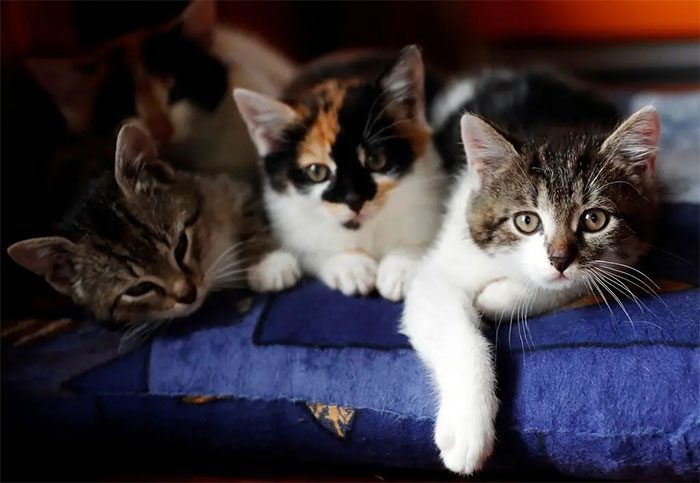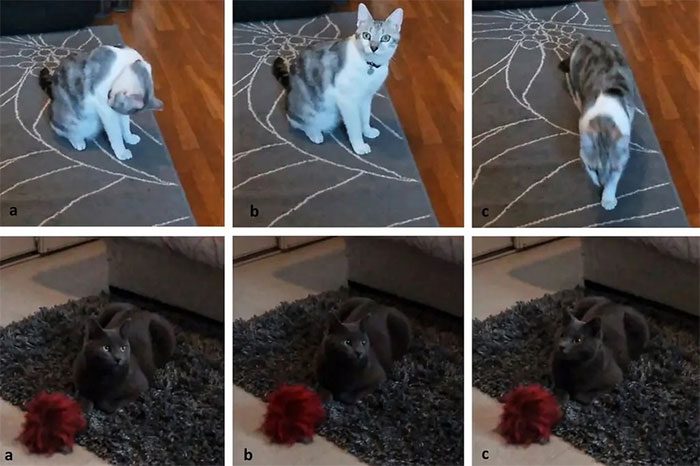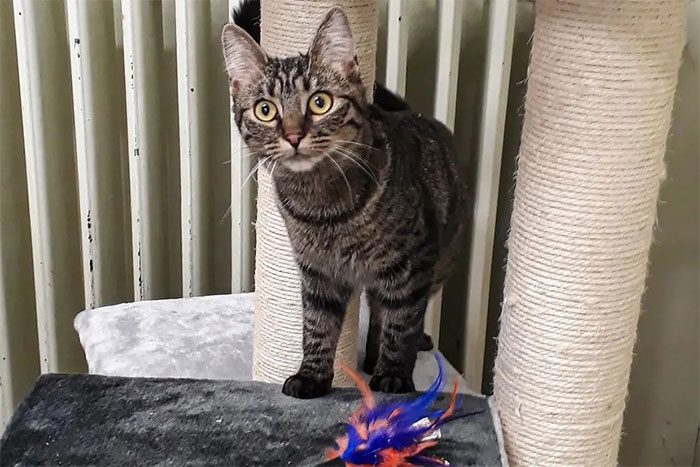Cats are famously aloof, but a new study reveals that their relationships with their owners may be stronger than we think.
Every “cat parent” seems to have stories about being ignored by their beloved cats, such as: “I called it, but it turned away.”
However, your beloved cat may not just be ignoring you; it could be listening and caring more than we think.
A study conducted by French scientists published in late 2022 in the journal Animal Cognition shows that cats do not just respond to a high-pitched voice in the same way we talk to children, but they also respond to the person speaking in that tone.

A new study shows that cats do not ignore their owners but only “react in very subtle ways.” (Photo: Reuters).
Subtle Reactions
Ms. Charlotte de Mouzon, the study’s author and a cat behavior expert at the University of Paris Nanterre, stated: “We found that when cats hear their owners using a high-pitched voice, they react more than when they hear their owner speaking normally, as they would to another adult. However, surprisingly, cats do not really react if that voice comes from a stranger.”
Unlike dogs, cat behavior is very difficult to study, which is part of the reason why humans understand them less. Cats often become so stressed in laboratory settings that observing meaningful behavior is nearly impossible.

Behavior changes before (a), during (b), and after (c) stimulus presentation (recordings of human voices). The stimulus begins to interrupt the grooming session of the cat above and causes the pupil of the cat below to dilate and its head to turn towards the speaker. (Photo: Charlotte de Mouzon).
Attempting to get a cat to sit still for an MRI scan to study its brain function is nearly impossible.
In the new study, scientists had to go to the homes of the cats and record different speaking styles and speakers.
After reviewing the footage, Dr. de Mouzon and her team found slight changes in their behavior and responses. “Their reactions are very subtle. It might just be moving one ear or turning their head towards the speaker, or even ‘freezing’,” Dr. Mouzon stated.
In some cases, the cats in the study approached the person producing the voice and meowed. “Eventually, we observed a very clear attention from the cats when their owners spoke to them,” Dr. de Mouzon added.
Kristyn Vitale, an assistant professor of animal health and behavior at Unity College in Maine, who was not involved in the study, commented that the new findings suggest “cats pay close attention to their caregivers, not just to what they say but also to how they say it.”
Enjoying Interaction
The new study complements Dr. Vitale’s own research on the relationship between cats and their owners, where this relationship seems to be modeled after the bond between kittens and their mothers. Cats appear to tend to repeat behaviors they typically engage in with their mothers when they were young with their new caregivers.
Unlike dogs, most cats actually prefer interaction with humans over other rewards like food or toys, Dr. Vitale noted.
Genetics may also play a role in explaining why dogs are easier to train and are thought to be friendlier.

A subject in the cat behavior study conducted by Dr. Charlotte de Mouzon and her team. (Photo: Charlotte de Mouzon).
Sarah Jeannin, a dog behavior expert at the University of Paris Nanterre, who was not involved in the new study, stated: “Dogs have been selectively bred for hundreds or thousands of years based on their trainability, whether they are herding dogs, hunting dogs, or other types.”
Dr. Jeannin dismissed the notion that dogs are closer to humans than cats. “People say that dogs are man’s best friend, that you can trust them and they are very loyal, but we don’t really know what dogs are thinking. We are practically just guessing that they love us.”
“For many years, scientists have not asked the right questions about cats,” Dr. Mouzon added.
Cats do not hate us, Dr. Vitale concluded, adding that “there is an increasing body of research supporting the idea that social interaction with humans is important in the lives of cats.”
According to Dr. de Mouzon, just because cats react in subtle ways does not mean they are aloof.
“Cats do not do what you expect them to do. But if a cat does not come when we call, it may be because they are busy doing something else or resting. People have such expectations of cats because when you call a dog, it comes. But if you call a person who is napping somewhere in the house, will they come to you?”


















































